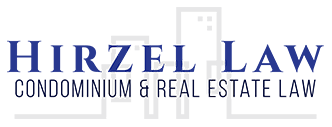Zoning
Real Estate Law Practice Areas
Attorneys
Areas We Serve
How Can a Zoning Lawyer Help Me?
 Whether you are a planning or zoning official looking to develop real property in Michigan or are seeking legal action with the help of a zoning attorney to enforce a zoning ordinance, it is imperative to have a proper understanding of the Michigan zoning laws. With proper planning and understanding of your development rights, the potential for legal issues diminishes greatly. Consulting a zoning attorney to learn exactly what your development rights are and how you can appeal a zoning ordinance that may potentially hinder your real property plans will aid you in the process and ensure you are fairly represented every step of the way. The zoning lawyers at Hirzel Law, PLC, are experienced in managing Michigan cases in matters such as land use, zoning issues, project planning, and obtaining municipal approval. Hirzel Law has worked alongside various developers, builders, and other property owners to assist them with:
Whether you are a planning or zoning official looking to develop real property in Michigan or are seeking legal action with the help of a zoning attorney to enforce a zoning ordinance, it is imperative to have a proper understanding of the Michigan zoning laws. With proper planning and understanding of your development rights, the potential for legal issues diminishes greatly. Consulting a zoning attorney to learn exactly what your development rights are and how you can appeal a zoning ordinance that may potentially hinder your real property plans will aid you in the process and ensure you are fairly represented every step of the way. The zoning lawyers at Hirzel Law, PLC, are experienced in managing Michigan cases in matters such as land use, zoning issues, project planning, and obtaining municipal approval. Hirzel Law has worked alongside various developers, builders, and other property owners to assist them with:
-
- Appearing before a planning commission
- Appearing before a board for zoning approval or the zoning board of appeals
- Interpreting ordinances
- Pursuing a zoning variance
- Appealing zoning decisions to circuit courts
- Litigating zoning violations
Regardless of whether you are a homeowner, a business owner, or a property developer you can benefit from consulting a zoning attorney. Although legal action is not always a prerequisite for moving forward with these types of cases, the lawyers at Hirzel Law, PLC, are prepared to help our clients with their zoning and land use issues regardless of how complex or challenging they might be.
What is the Michigan Zoning Enabling Act?
The Michigan Zoning Enabling Act, MCL 125.3101, et seq., states its purpose as:
AN ACT to codify the laws regarding local units of government regulating the development and use of land; to provide for the adoption of zoning ordinances; to provide for the establishment in counties, townships, cities, and villages of zoning districts; to prescribe the powers and duties of certain officials; to provide for the assessment and collection of fees; to authorize the issuance of bonds and notes; to prescribe penalties and provide remedies; and to repeal acts and parts of acts.
It is important for all Michigan property owners to comply with the Michigan Zoning Enabling Act in order to avoid enforcement action from a municipality, or some instances, an adjoining property owner. The Michigan Zoning Enabling Act, specifically MCL 125.3101, states:
(1) A local unit of government may provide by zoning ordinance for the regulation of land development and the establishment of 1 or more districts within its zoning jurisdiction which regulate the use of land and structures to meet the needs of the state’s citizens for food, fiber, energy, and other natural resources, places of residence, recreation, industry, trade, service, and other uses of land,. . . to facilitate adequate and efficient provision for transportation systems, sewage disposal, water, energy, education, recreation, and other public service and facility requirements, and to promote public health, safety, and welfare.
If a property owner does not comply with the Michigan Zoning Enabling Act, or the local zoning ordinances enacted by a municipality, it is not uncommon for a property owner to become involved in litigation. As indicated in “Zoning Challenges: Who Is An ‘Aggrieved Party’?” by Hirzel Law, PLC, there are circumstances in which a private property owner may be able to enforce a zoning ordinance. Specifically, the Michigan Courts have held as follows:
Individuals wishing to challenge a decision of the zoning board of appeals, or a municipal zoning commission, must show “special damages”—i.e., those damages that are distinct and different from the injury suffered by the public generally. These special damages must be unique and are often difficult to articulate. Aggrieved individuals should retain competent counsel as soon as possible to discuss their rights and whether they have standing to challenge any zoning decision.
As such, both a municipality or a private property owner may have standing to enforce the Michigan Zoning Enabling Act or a local zoning ordinance. Accordingly, it is important to consult with a zoning attorney to avoid litigation if you are experiencing a zoning issue.
What is a Zoning Variance?
If a property owner wants to change a zoning classification for a property, they may request a zoning variance from the zoning board of appeals. The process of requesting a granted variance requires the property to submit the variance, in writing, to the zoning board of appeals. One common request for a zoning variance involves a use variance, which permits the property owner to use their property in a manner that may otherwise violate the zoning ordinance. Similarly, another type of request for a zoning variance is a dimensional variance, which would permit a property owner to construct something on their property that would otherwise violate the zoning ordinance. By way of example, if the zoning ordinance only permitted two story buildings, a property owner could request a variance to build a three story building. MCL 125.3604 of the Michigan Zoning Enabling Act requires that:
The zoning board of appeals of all local units of government shall have the authority to grant nonuse variances relating to the construction, structural changes, or alteration of buildings or structures related to dimensional requirements of the zoning ordinance or to any other nonuse-related standard in the ordinance.
A variance, however, must be granted by a two-thirds vote of the members of the zoning board of appeals in the fashion of a public hearing. The party seeking a granted variance may appear personally or by their respected zoning attorney. In such instances when the property owner is seeking a granted variance by the zoning board of appeals, involving a qualified zoning attorney in such zoning litigation manners may increase the probability of a granted zoning variance by the zoning board of appeals.
How to Appeal a Decision of the Zoning Board of Appeals?
If a property owner is unsuccessful in making a request for a variance to the zoning board of appeals, the property owner may need to commence litigation. MCL 125.3606 of the Michigan Zoning Enabling Act states:
The circuit court shall review the record and decision to ensure that the decision meets all of the following requirements:
-
- Complies with the constitution and laws of the state.
- Is based upon proper procedure.
- Is supported by competent, material, and substantial evidence on the record.
- Represents the reasonable exercise of discretion granted by law to the zoning board of appeals.
Consulting with a zoning attorney will ensure all requirements are met before appealing the decision of the zoning board of appeals. Accordingly, if a zoning board of appeals has denied a request for a zoning variance, a zoning attorney should be consulted to determine if there are grounds to appeal to circuit court.
Obtain Legal Assistance with Land Use and Zoning from a Michigan Real Estate Attorney
Land use and zoning can be difficult to understand but having an experienced zoning lawyer can help. At Hirzel Law, PLC, our Michigan zoning lawyers can help you with any disputes that may arise. We stand by our clients, offering the highest quality legal representation and promptly responding to our clients’ needs. Contact Hirzel Law online or call call 248-986-2290 (Farmington) or 231-486-5600 (Traverse City) or 616-319-4527 (Grand Rapids) to see how our Michigan zoning attorneys can help with land use issues regarding your property.
